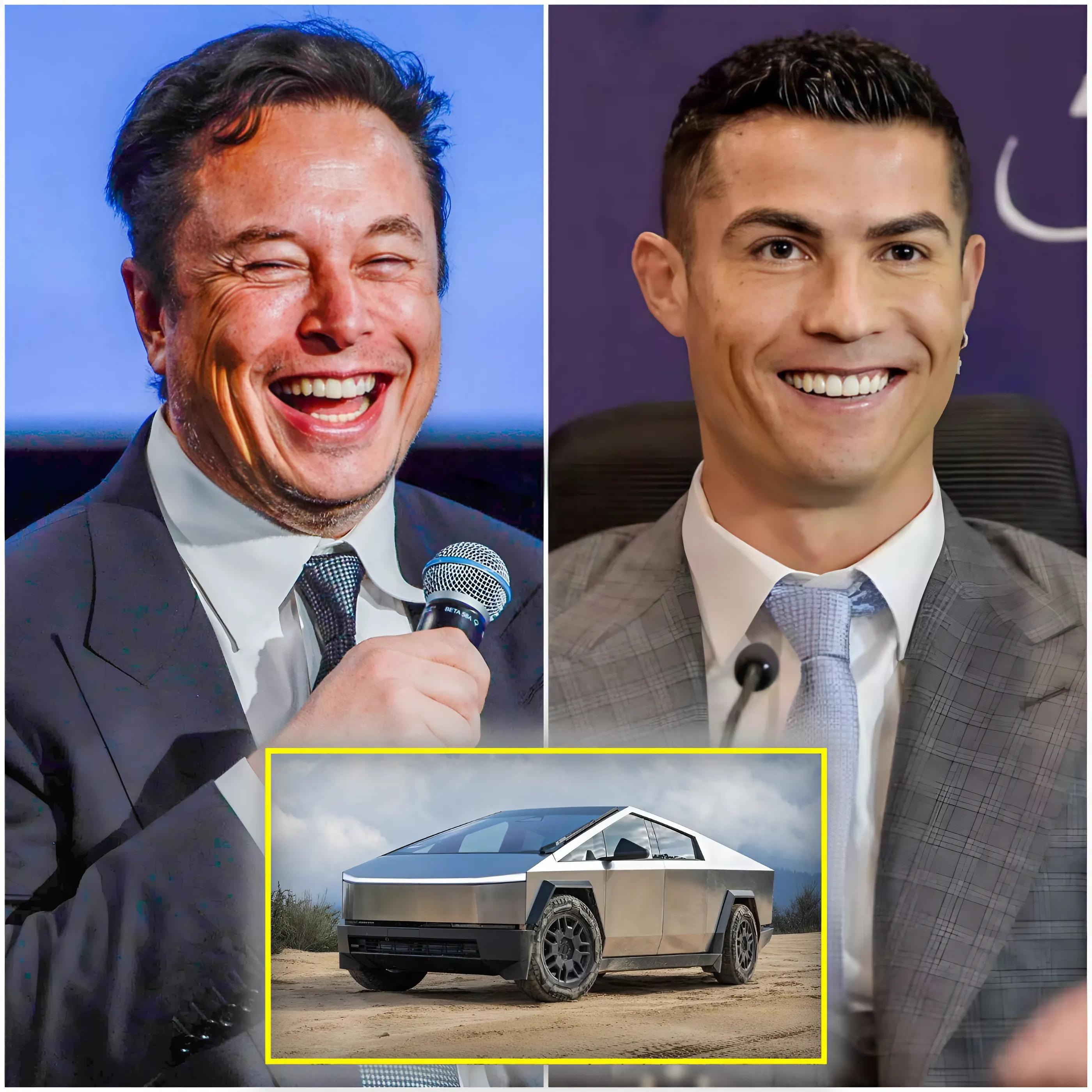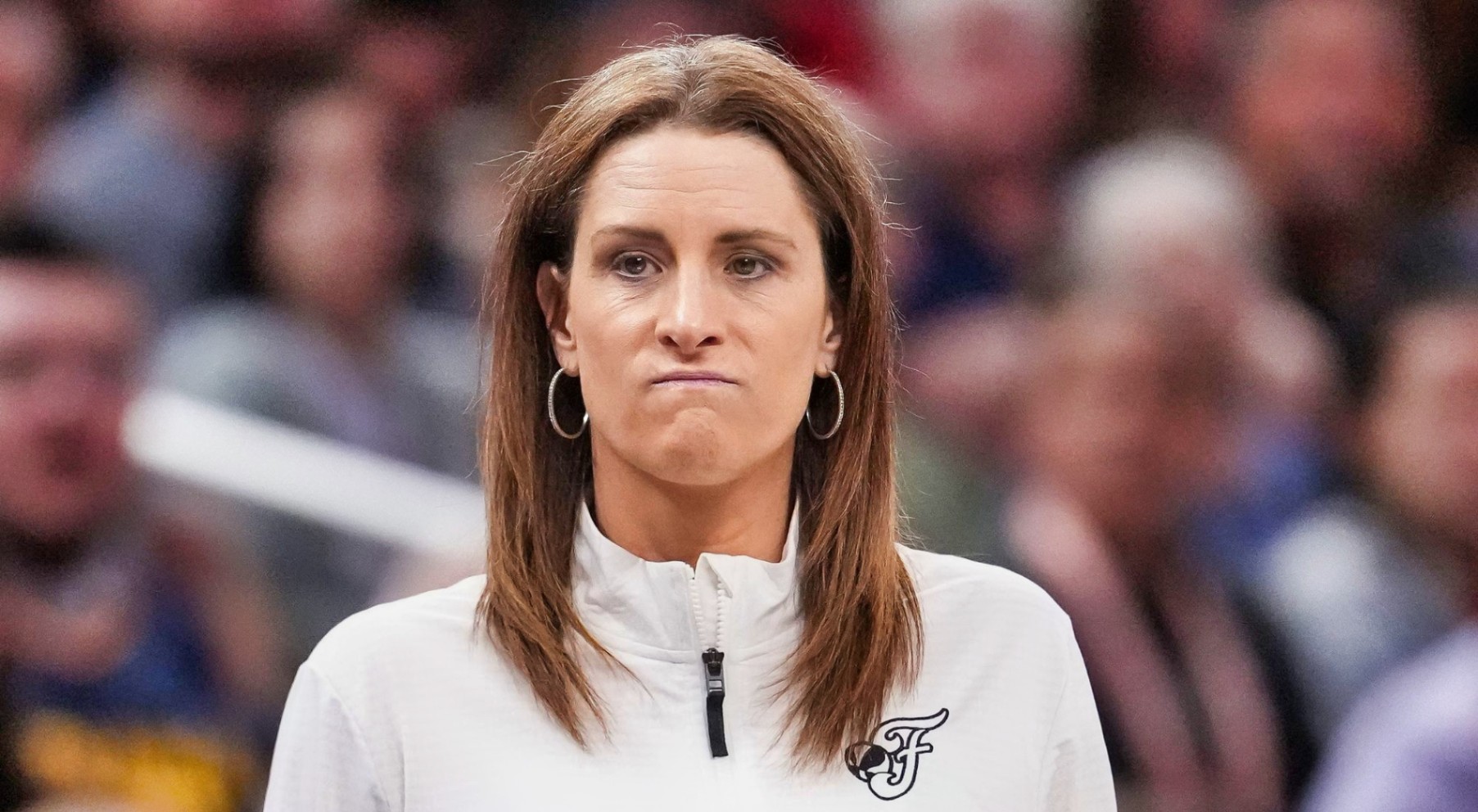10 MINUTES AGO: Elon Musk’s $100M Offer to Cristiano Ronaldo Wasn’t Just a Deal — It Was a Masterstroke That’s Left the World in Awe

It started with a whisper—then became a roar. Somewhere between Silicon Valley’s glass towers and the echoing cheers of Riyadh’s football stadiums, the world’s most disruptive innovator reached out to the world’s most followed athlete. Elon Musk, the man who wants to take us to Mars, reportedly slid a jaw-dropping $100 million offer across the table to Cristiano Ronaldo—the football icon turned global brand—for one purpose only: to make him the face of the Tesla Cybertruck. It was a move that shook both the tech and sports worlds. But what followed… wasn’t what anyone expected.
Ronaldo said no.
And in that single moment, a media storm was born. Speculation ran wild. Critics whispered of rejection. Analysts called it a miscalculation. But then something happened. Musk didn’t chase. He didn’t plead. He didn’t even blink. Because what no one realized—not at first, anyway—is that Elon Musk was never playing the game everyone else thought he was playing. He was playing his own.
Let’s rewind.

The Cybertruck, Tesla’s futuristic beast on wheels, was never built to blend in. It was made to stand out—bold, unapologetic, unlike anything on the road. And in a moment of high-stakes strategy, Musk offered the king of the pitch a role in this vision. Not just an ad campaign. Not just a sponsorship. But an invitation into a revolution. A chance to stand beside a machine that defied norms the same way Ronaldo once defied gravity on the field.

And Ronaldo? He declined. “I only promote what I believe in,” he said at a press conference, when asked about the rumor. It was simple, honest—and for some, powerful. But for Musk, it wasn’t a defeat. It was revelation.
Because Elon Musk doesn’t need to be accepted by the establishment. He is the force that rewrites it. What the world soon realized was that this wasn’t a setback—it was a filter. A filter that revealed who truly saw the future, and who was still clinging to the past.
The $100 million wasn’t a gamble. It was a mirror.
And in that mirror, Musk saw exactly what he needed to see.
What followed was a masterclass in composure. No fiery tweets. No rebuttals. Just one chilling line on X: “Some people don’t understand the future. Let’s move on.” And with that, he did. Because while some saw rejection, Musk had already shifted gears. Rumors began swirling almost instantly—Beyoncé, Tom Brady, even K-pop megastars. The Tesla team had options. But more importantly, Musk had momentum. The Cybertruck didn’t need celebrity. It needed conviction. It needed vision. And Musk, as always, had both.

Behind the scenes, insiders say Musk’s strategy was never about celebrity worship—it was about setting the tone. “He knew Ronaldo might say no,” said one Tesla exec. “That’s exactly what made the offer genius. It put everyone on notice: the future is here, and you either believe in it—or you get out of the way.”
Meanwhile, Tesla’s stock didn’t falter. In fact, it climbed. Why? Because investors understood something deeper. Musk wasn’t chasing validation—he was filtering for alignment. And the Cybertruck, the angular, armored, electric marvel, was now wrapped in something even more valuable than a sponsorship deal: a narrative.
It became the vehicle too bold for tradition. Too fierce for the faint-hearted. Too real for those still stuck in the old rules of fame and flash.
And what of Ronaldo? He walked away with his principles intact. But Musk walked away with something bigger: control of the story. Control of the brand. And, once again, control of the conversation.
The world may have gasped when Ronaldo declined. But Musk? He smiled.
Because in the end, the Cybertruck was never about the man who said no.
It was about the millions who will say yes.

